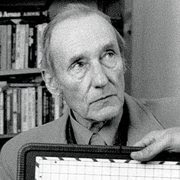 |
|
Diane Ravitch
Contrary to popular myth, New York City’s charter schools are more racially segregated than public schools and performed no better on state tests. How did a privately managed school franchise manage to hijack the new mayor’s education reforms?
|
| |

ADVERTISEMENT
|
|
|
| |
 |
|
Perry Link
What happened in and around Tiananmen Square twenty-five years ago haunts the memories not only of people who witnessed the events and the families of the victims, but also of those who stood, and still stand, with the attacking side.
|
| |
 |
|
Amy Knight
Washington officials have described the possibility of Russian actions in eastern Ukraine and Transdniestria as a radical shift in Russia’s relations with the West. But to anyone who has followed the Kremlin closely over the years, none of this should come as a great surprise.
|
|
|
| |

ADVERTISEMENT
|
| |
 |
|
J. Hoberman
Although too capricious (or should we say promiscuous?) to be a taxonomy, Lars von Trier’s Nymphomaniac is designed to illustrate and exhaust every popular theory of nymphomania, including, of course, the idea that the condition exists only as a male fantasy.
|
|
|
| |
 |
|
Dan Chiasson
One big intervention modern poetry made was to change our sense of the word “song,” which for aeons was a relatively uncomplicated synonym for “poem.” Surely poets couldn’t simply “sing” in the midst of war, chaos, historical belatedness, mass production, bottomless anxiety—all the bad things that supposedly came into the world after the moment in 1910 when, as Virginia Woolf put it, “human character changed.”
|
| |
|
|
W.S. Merwin
Because they already know that it means
stopping and without stopping they know that
beyond stopping it will mean listening
listening without hearing and maybe
then hearing without hearing and what would
they hear then what good would it be to them
like some small animal crossing the road
suddenly there but not seeming to move
at night and they are late and may be on
the wrong road over the mountain with all
the others asleep and not hitting it
that time as though forgetting it again
|
|
|
| |

April 3–6: A suitably outré mixed bag for the Burroughs centennial
|
| |

April: A series of lectures byAnthony Grafton
|
|
|
|

